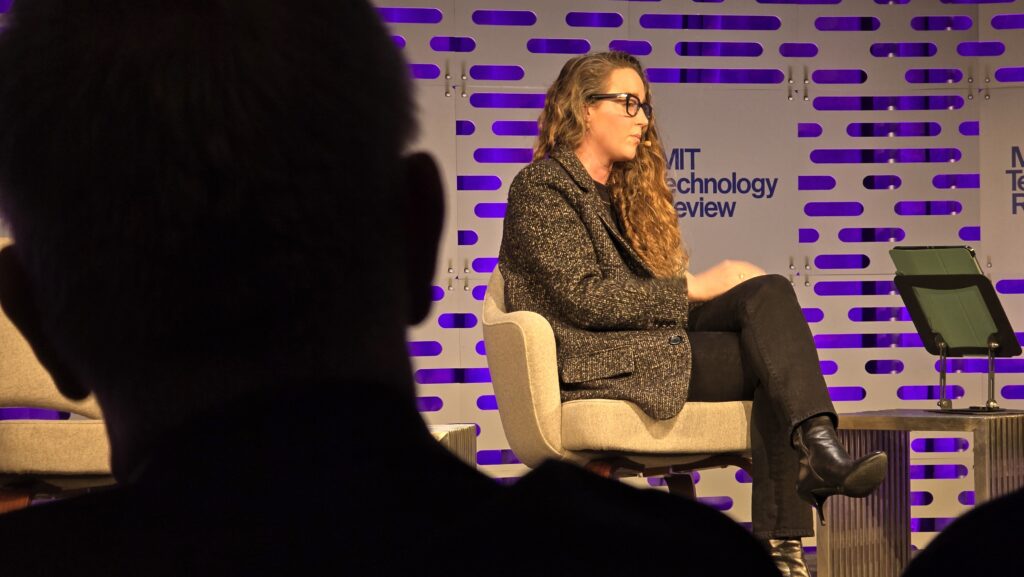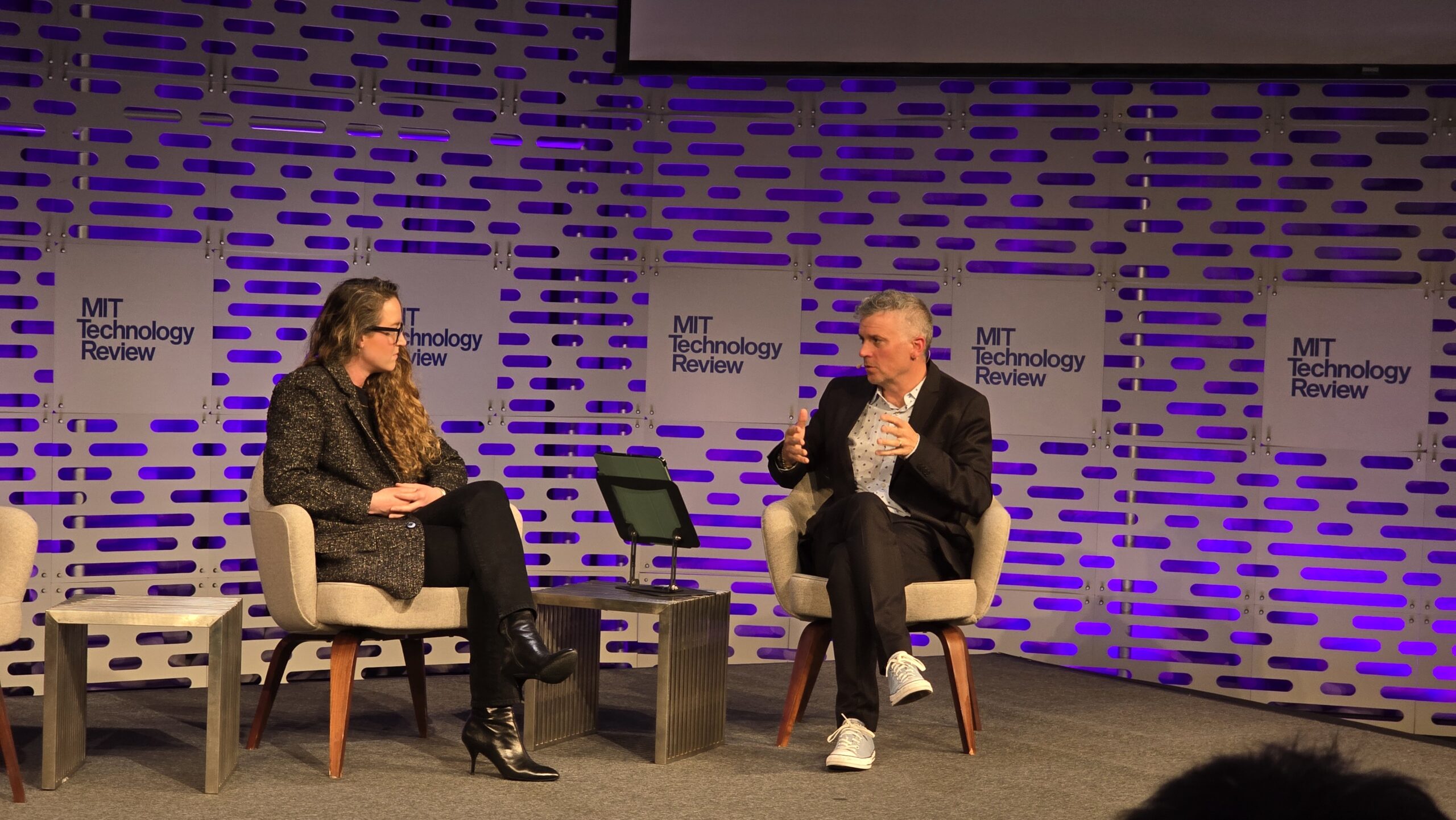Cambridge, MA – MIT EmTechAI: Terah Lyons, currently the Global Head of AI & Data Policy at JPMorgan Chase, has spent her career shaping how governments and private sector organizations approach the governance and responsible use of artificial intelligence. With over a decade of experience spanning public service, nonprofit leadership, and now the financial sector, Lyons is uniquely positioned to reflect on the evolution and future of AI policy.
From White House Beginnings to Global Financial Leadership
Lyons’ journey began in the Obama White House, where she helped launch the first-ever U.S. government AI policy strategy. This early work recognized the profound societal and economic impacts that AI would have and set the stage for ongoing policy refreshes and strategic planning. A pivotal moment came with the public’s realization of AI’s potential, such as when AlphaGo defeated a world champion in Go-a technical breakthrough that signaled the urgency of coordinated governance.
Following her government service, Lyons became the founding Executive Director of the Partnership on AI, a global nonprofit coalition of tech companies, civil society groups, and academic institutions. There, she worked to shepherd the emerging field of AI governance, focusing on best practices, transparency, and the ethical deployment of AI technologies.
The Financial Sector as a Model for AI Governance
Now at JPMorgan Chase, Lyons sees the financial sector’s approach to risk management and regulatory compliance as a valuable blueprint for AI governance. Banks have long operated under strict regulatory regimes, developing robust accountability structures and risk management frameworks. These practices, honed over decades, offer lessons for other sectors grappling with the rapid adoption of AI.

Financial services have been early and widespread adopters of AI, implementing advanced models in a highly regulated environment. This sector-specific oversight has allowed for dynamic, incremental updates to governance frameworks-an approach Lyons argues is more effective than broad, cross-sector regulation, given the fast pace of technological change.
The Shift from Principles to Practice
Over the past decade, the conversation around AI governance has evolved from high-level principles to practical implementation. Organizations now focus on making AI useful and safe, emphasizing transparency, explainability, and tailored governance based on specific use cases. This shift reflects a broader recognition that effective oversight must be adaptable and context-sensitive.
Fragmentation and the Challenge of Global Coordination
Despite progress, Lyons warns of increasing fragmentation in AI regulation. Different jurisdictions-such as the EU, South Korea, and various U.S. states-are developing their own rules, creating a complex patchwork that complicates compliance for multinational organizations. This regulatory divergence raises barriers for innovation and risks leaving global governance efforts without a unified direction.
In contrast, the financial sector has achieved a degree of global regulatory coordination, with regional regulators working closely together and shared goals around safety and soundness. Lyons suggests that AI governance could benefit from similar international collaboration to avoid geopolitical stratification and ensure that AI’s benefits are widely shared.
Sector-Specific Regulation: A Pragmatic Path Forward
Lyons advocates for sector-specific regulation as the most effective way to govern AI. Given the rapid evolution of technology and the unique risks in different industries, sectoral approaches allow for targeted, flexible oversight. This model enables incremental improvements to risk management and governance without the need for sweeping legislative changes that may quickly become outdated.
Avoiding Unintended Consequences in AI Policy
Drawing lessons from past technology regulation, such as Section 230 of the Communications Decency Act, Lyons emphasizes the need for holistic, forward-thinking policy. Effective AI governance must account for the entire technology stack and the complex interdependencies among providers, deployers, and users. Broadening the policy aperture and bringing diverse voices into the conversation are essential to crafting rules that anticipate rather than react to future challenges.
Advice for Regulated Industries
For sectors unsure how to approach AI, Lyons recommends proactive engagement with public sector counterparts and active participation in policy discussions. Regulated industries should view themselves as key stakeholders in shaping AI governance, helping policymakers understand sector-specific risks and needs. Collaboration and open dialogue are critical to ensuring that regulations are both effective and adaptable.
The Importance of Standards and Certification
Finally, Lyons highlights the growing importance of technical standards and certification regimes in AI governance. Developing sector-specific standards and robust infrastructure for model testing and auditing will be crucial to ensuring compliance and building trust in AI systems. While these efforts are still in early stages, they represent foundational building blocks for the future of responsible AI.
Conclusion
Terah Lyons’ perspective, shaped by experience across government, nonprofit, and industry, underscores the complexity and urgency of AI governance. Her call for sector-specific, globally coordinated, and standards-driven approaches offers a pragmatic roadmap for organizations and policymakers navigating the rapidly evolving landscape of artificial intelligence.
For more information, please visit the following:
Website: https://www.josephraczynski.com/
Blog: https://JTConsultingMedia.com/
Podcast: https://techsnippetstoday.buzzsprout.com
LinkedIn: https://www.linkedin.com/in/joerazz/


Leave a Reply
You must be logged in to post a comment.